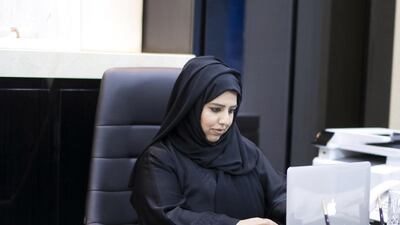ABU DHABI // Parents and lawyers have welcomed the UAE’s new child protection law as avital tool to help protect youngsters from harm.
On Tuesday, President Sheikh Khalifa issued Federal Law No 3 of 2016 on children’s rights, which was originally named Wadeema’s Law after the eight-year-old Emirati girl who was tortured to death by her father.
The law, published in the Official Gazette, will come into force in three months.
It lays out the legal rights of minors, establishes punishments for those who violate those rights and allows childcare specialists to remove children from their homes against parents’ wishes and without judicial permission in cases of imminent danger.
In less severe cases, specialists may intervene by visiting regularly, providing social services and mediating a solution between the family and the child.
Those who obstruct the work of a childcare specialist will be subjected to a fine.
Those who put children in danger, abandon them, neglect them, leave them without supervision, do not enrol them in school or register them upon their birth, will be subject to a prison sentence or a fine.
The law applies to all children up to the age of 18.
Lawyer Huda Rostom Al Falamarzy, of Mohammed Al Hashimi Advocates and Legal Consultants, said it would help authorities who have to deal with “many child abuse cases, about 10 cases every month”.
“This law is a very big move for the country. This will help us when we are fighting cases for children,” said Ms Al Falamarzy.
“People can’t even smoke in front of their children if they are under the age of 18. They will be investigated. This is required here,” she said.
Zakeya Al Ameri, an Emirati mother of two sets of twins, agreed that legislation to protect the rights of the children was of vital importance.
“We are in a country with more than 200 nationalities, different cultures, ethnicities, and religions. These differences bring different practices and the children in this country deserves equal rights that bring a safe childhood to all.”
Sudanese-American expatriate Esraa Bani-Rothman said mothers would see the new law was “fabulous” for the country.
“The reaction from moms is ‘it’s about time’ and they’re excited.
“This law is for all our children. It does not discriminate. It is important that a higher authority is taking care of the next generation,” said the mother of three and founder of Moms Guide Abu Dhabi. “They are communicating that every child in UAE has the right to be loved and nurtured.”
Advocate-General Mohammed Rostom, head of family and juveniles prosecution and a member of the team which revised the draft, said that the law filled in some of the gaps in law that concerned parental involvement.
He added that the law also engaged community members in the protection of all children as it criminally charged those who refrain from reporting child abuse.
“It will be a road map for all law professionals and community members by which we will all collaborate in the process of child protection and abuse prevention,” said Mr Rostom.
“I believe this law will curb negative approaches related to raising children,” he said.
The provisions also protect mothers from abuse.
“Mothers and children are being beaten up by their husbands and now they have a right and their own law,” said Ms Al Falamarzy. “By this law, the problems will become less.”
The law is an example of how the country in progressing, she said.
“When we discuss the law in the legal community, we are very happy to see it developing. The UAE is developing in business and when rights are given to children, this will also drive development.
“The sheikhs are thinking of children’s rights as well as women’s rights and human rights. They know the Government and country are with them, and we are hoping this will develop further.”
Federal National Council member Marwan Bin Ghlaitha, who was present when the council discussed and passed the law, said that it will clear the way for other child protection decisions and agreements.
“This law is important to clarify related issues and how they should be operated. Today, we need it to implement many decisions that have been taken by the ministry of labour, regarding babysitters for instance,” he said.
The law was passed by the FNC in January 2014.
arizvi2@thenational.ae
salamir@thenational.ae
hdajani@thenational.ae

